Why Residents of Qarabulaq Are Opposing a Gold Mining Project Near Stepnogorsk
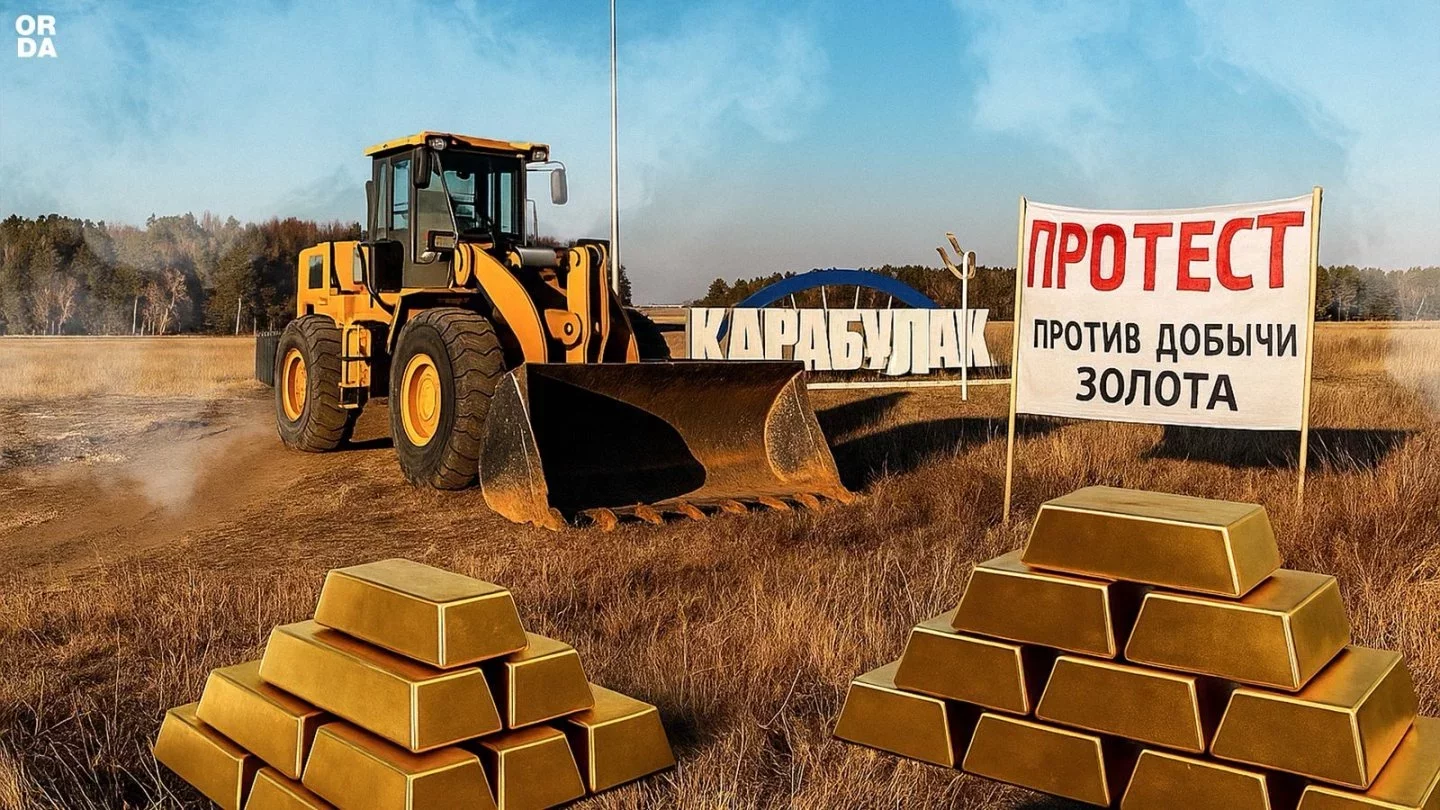 Photo: Orda.kz
Photo: Orda.kz
Residents of Qarabulaq village in the Aqmola region are alarmed by plans to build an open-pit mine close to their homes. Their village remains the only environmentally clean place in the industrial Stepnogorsk area. Locals are strongly opposed to letting Qarabulaq become another Aqsu, Bestobe or Zavodskoy — places known for their damaging environmental impact. They warn they will not accept any conditions and are ready to stand their ground against gold-mining developers.
Orda.kz learned the details.
The Village
Qarabulaq is located eight kilometers from Stepnogorsk. The settlement stands out sharply against the gray industrial landscape surrounding it.
The first thing you notice is dense pine forests encircling the village.









The road into Qarabulaq is freshly paved, as if laid only yesterday, with new markings still bright.
Everything here shows care and order: straight streets, tidy paved sidewalks, a large colorful bus stop. A small route minibus runs hourly between the village and the city.
The neat house fronts, the children playing on a bright modern playground, all match the atmosphere of well-being and comfort.
Today, about 1,400 people live in Qarabulaq. The village has a school, a kindergarten, a model library, a club, and three shops. Medical care is provided mainly in Stepnogorsk, and basic first aid is available at the local feldsher-midwife station. A new cultural center for 150 people is under construction, costing about 800 million tenge.
More than half of the residents work locally; the others commute to the city.
How It Began
The villagers — or rather, the most active among them — gathered at the library to tell Orda.kz about the one major problem that worries them. A few months ago they learned that the gold-mining company Altynalmas plans to build an open-pit mine at the Pervomaiskoye deposit. It is located 12 km from Stepnogorsk and 10 km from Qarabulaq.
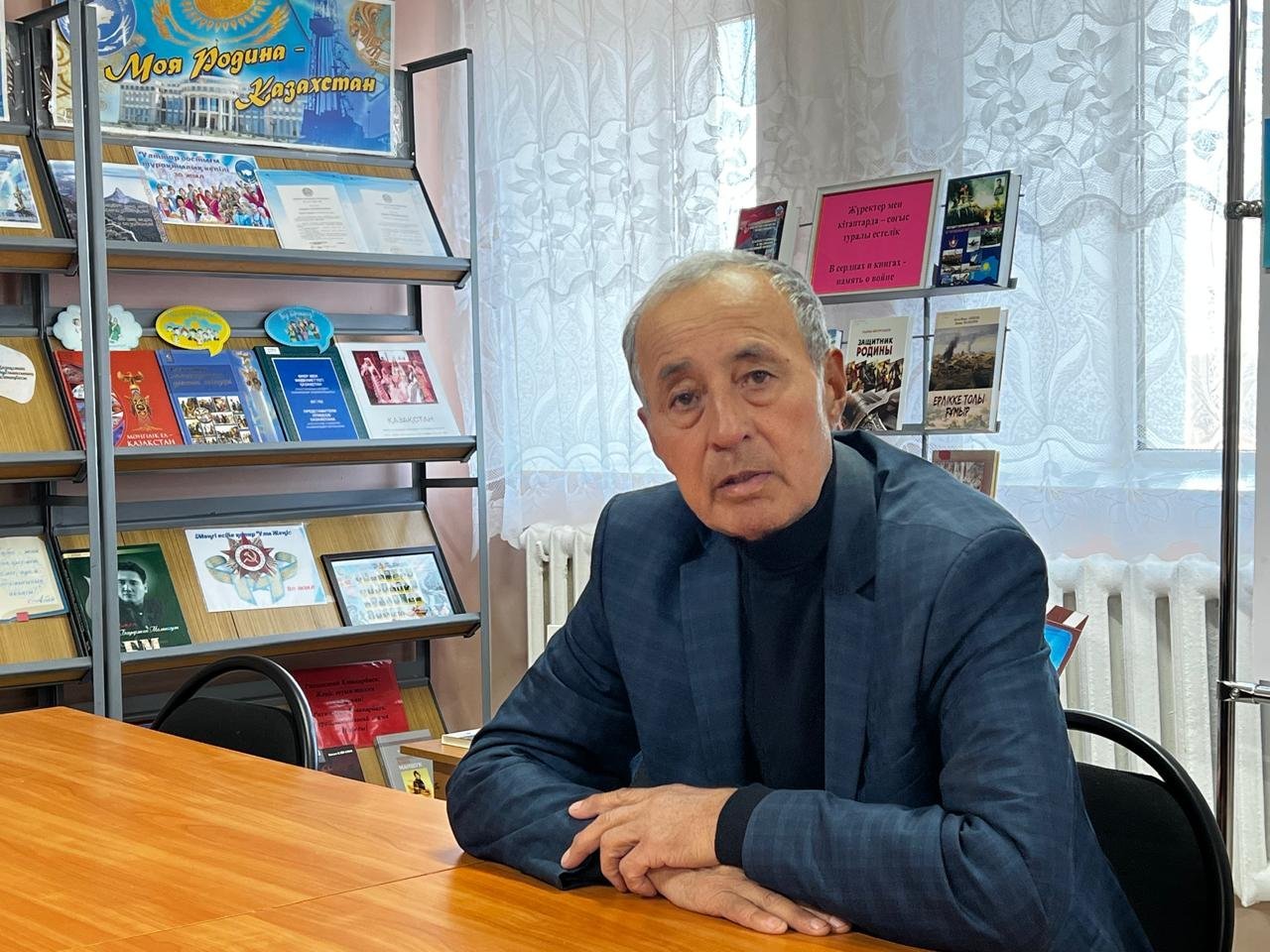
Kairgeldy Aitimov has lived here since 1963. The village was founded only two years earlier, in 1961. The aqsaqal (a respected elder – Ed.) smiles as he says he left only twice in his life — for study and for army service.
The village began as a state farm, created to develop virgin lands. Livestock was the main focus — a dairy complex was built. Later, crop farming was added, but remained secondary — feed crops were sown mainly.
After the collapse of the USSR, the farm was left leaderless. Management left in search of better prospects.
Salaries went unpaid. The remnants of the farm were divided among the villagers — otherwise we would not have survived. Families kept livestock and lived off small farms. At first we belonged to one district, then another. From 12,000 residents only 900 remained. There was no electricity for eight months. No drinking water for ten years — it was brought from the city. A bucket cost five tenge, a cubic meter — 500. Things changed when in 1999 we were transferred under Stepnogorsk administration. But people held together — thanks to them Qarabulaq became a promising settlement, the only one in our industrial region. We preserved 80 percent of the houses and some livestock buildings, said Kairgeldy Islyambekovich, who led the village for many years.
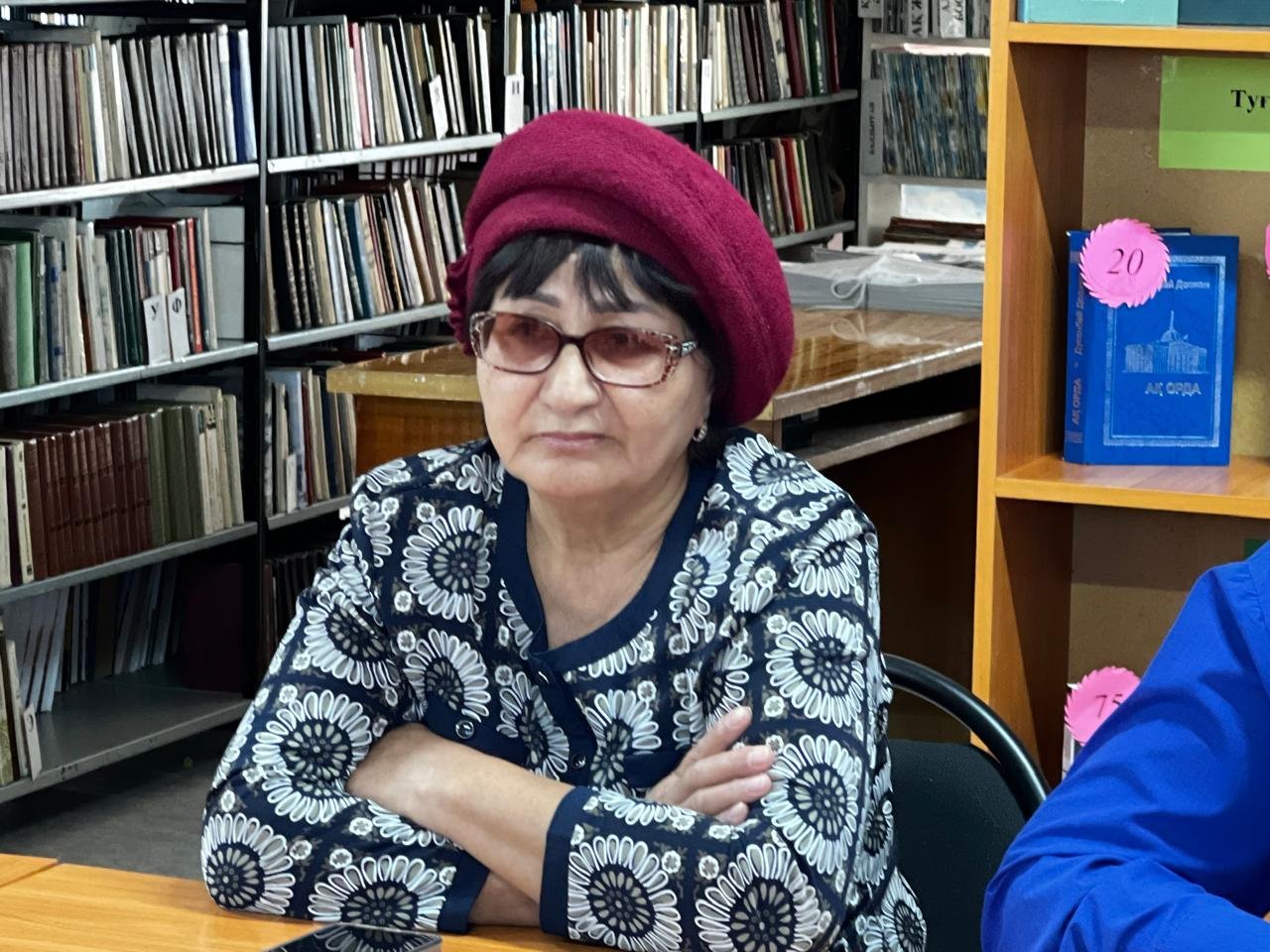
Zinaida Kapezova, his classmate, has lived here more than half a century, and taught at the local school for 41 years:
I remember both the old school building and the new one built in 1975. I remember how we moved the furniture and equipment. I worked and studied part-time at the institute at the same time. After the Soviet collapse, keeping the school running was difficult — we built stoves, broke through ceilings. If there was a stove downstairs, upstairs classrooms warmed through its chimney. During breaks, the cleaners came in with buckets and threw coal into the fire. Firewood was brought from home, collected from students piece by piece. In the 90s there was almost no food, some families survived on bran. We got through only because we stayed united.
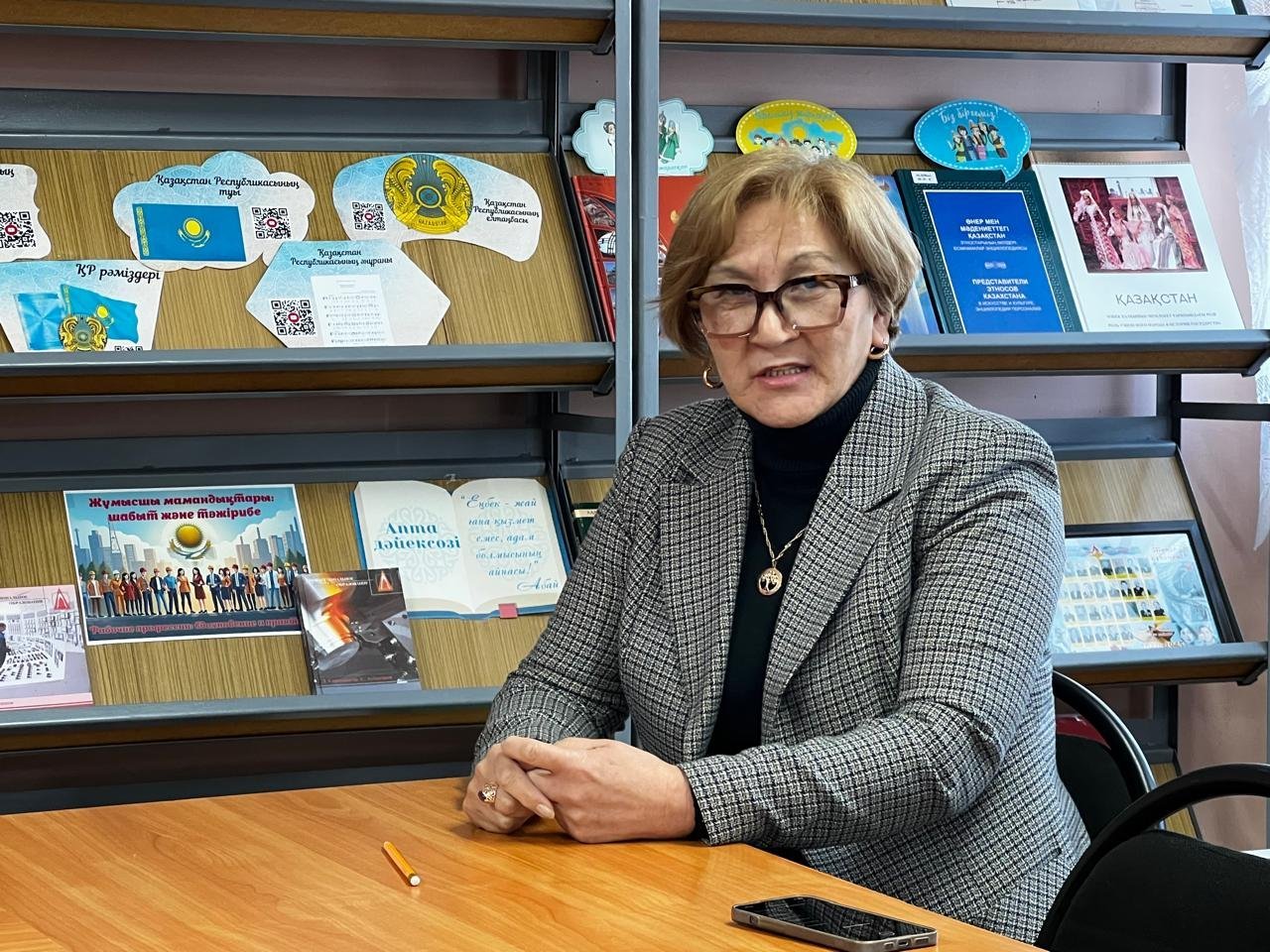
Library director Marzhan Battalova has lived in Qarabulaq since 2000. There were no roads or water then.
My husband and I still remember digging our well by hand. Today, water flows into every home. The streets are paved, all of them are lit. We have everything — it’s like a state within a state.
There is not a single house for sale today.
The Village Feeds Itself — and The Region
Orda.kz has previously written about Stepnogorsk’s industrial nature: gold and associated ores are mined here; nearby, in the Birzhan sal district, uranium and its compounds are processed. Mining enterprises inevitably affect the environment. Surrounding villages bear clear signs of industrial pollution.
Qarabulaq is the last green island — an oasis among dusty gray landscapes.



The village supplies clean, natural food to itself, Stepnogorsk, and the surrounding settlements. Around 2,500 horses graze here — many owned by city residents. Before harvest, they pasture in the steppe; after harvest, they return to the fields.
Around 20 farms operate. One belongs to Zhanbay Omarov, who raises livestock and grows wheat and fodder crops. Wheat goes to mills and reaches the city already as flour.
Omarov breeds sheep (3,000 head), cattle, and even produces marbled beef.
We brought our beef Herefords from Russia — now we’ve got 780 head. We even run a small feedlot of our own. Everything we produce goes straight to the city markets. We don’t ship it far, and we don’t export it, he says.
Residents on The Planned Mine
The first thing that angers villagers is that neither the rural akimat nor the city authorities informed them about the plans. Locals believe officials fear public backlash. If mining begins and the wind blows toward the village, Stepnogorsk will be affected as well.
In the summer we had an initial meeting with representatives of Altynalmas. They told us they planned to begin open-pit mining at the Pervomaiskoye deposit. That worried me, because our fields are only five meters away. We had many questions — mostly about environmental safety, the impact on nature, and the health of residents. But the gold miners weren’t prepared for them and couldn’t give any clear answers. They simply said there would be no negative impact.says Omarov.
The news was painful.
We know firsthand what happened to Aqsu, Zavodskoy, Bestobe. It’s a stark contrast. Like the song says, ‘No birds sing here, no trees grow…’ Everything is gray, covered in fine dust. We can even feel the industrial blasts in Aqsu, even though it’s 20–30 kilometers away — the ground shakes. Everyone also knows about the regular chemical leaks they have. Livestock often dies because of it. The company tries to hush it up and pays compensation to locals, but everybody knows what’s going on anyway. says the farmer.
He fears livestock and meat quality will collapse — toxic dust will reach grazing animals and food products.
Qarabulaq is the green lung of the region — surprisingly still alive in an industrial zone.
The soil is rich, crops yield well, and people eat clean local food.


Wheat is pure and tasty. The Baymakov family supplies locals with hay for their livestock — good feed means good milk and butter, says Zinaida Nurlykarimovna.
Residents gather mushrooms and berries in the forest. Wildlife is returning — roe deer, elk, boars, hedgehogs, geese, even bustards.



Villagers foresee an ecological disaster. Five to six years of mining could leave irreversible consequences.
They plan to develop this deposit for five or six years. But afterward, the damage won’t be undone — not in five years, not in twenty. The waste piles will constantly erode in the wind, and all of it will blow in our direction. The mine is far too close to us. Very soon this will start affecting people’s health. I’m saying this not only as a resident, but as the head of a livestock farm. Today our meat is an environmentally clean product, but tomorrow the level of heavy toxic metals in it will rise sharply. And that’s not even mentioning the grain. Selling such food to city residents would be wrong, the farmer says anxiously.
“The Ancestral Graveyard Will Be Destroyed”
Balabek Beissembekov breeds horses, produces qymyz (a traditional fermented dairy product made from mare milk – Ed.), and offers hippotherapy services.
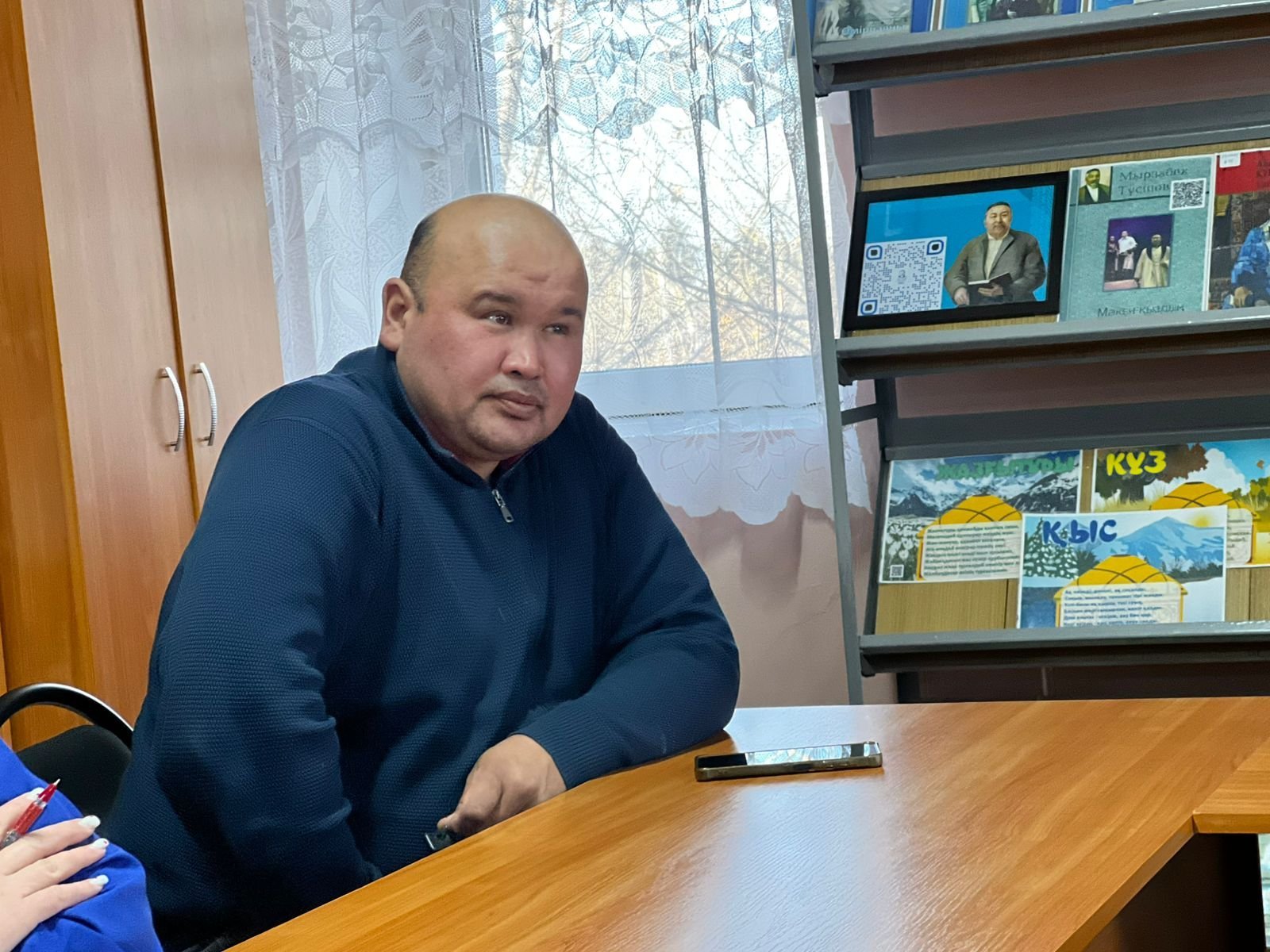
During the season, he gave fresh mare’s milk — saumal — away for free, four times a day after each milking. He even bought and set up a yurt specifically for this purpose.
Around 30 people with serious illnesses, including cancer patients, regularly came to him.


He fears everything will be lost:
We have a respected large family here — the Bopeshevs, ten children in total. They also breed horses, and have done so for generations. The site where the mining is planned is where their ancestral cemetery lies — all their forebears are buried there. The ziyarat (grave – Ed.) will, of course, be destroyed. There are several cemeteries in that area, but this one is the largest.
Villagers are also worried about plans to build a service road that the gold-mining company intends to use for transporting ore.
They’re planning to lay the road to Kvartsitka just 100 meters from my house. That means constant noise around the clock — and clouds of dust. And not just dust, but harmful particles mixed in, says Balabek Aınabekovich.
Tatyana Kovaleva is a schoolteacher — the fourth generation of her family to live in Qarabulaq. Her house, built by her grandfather, one of the first settlers, stands right at the edge of the forest.
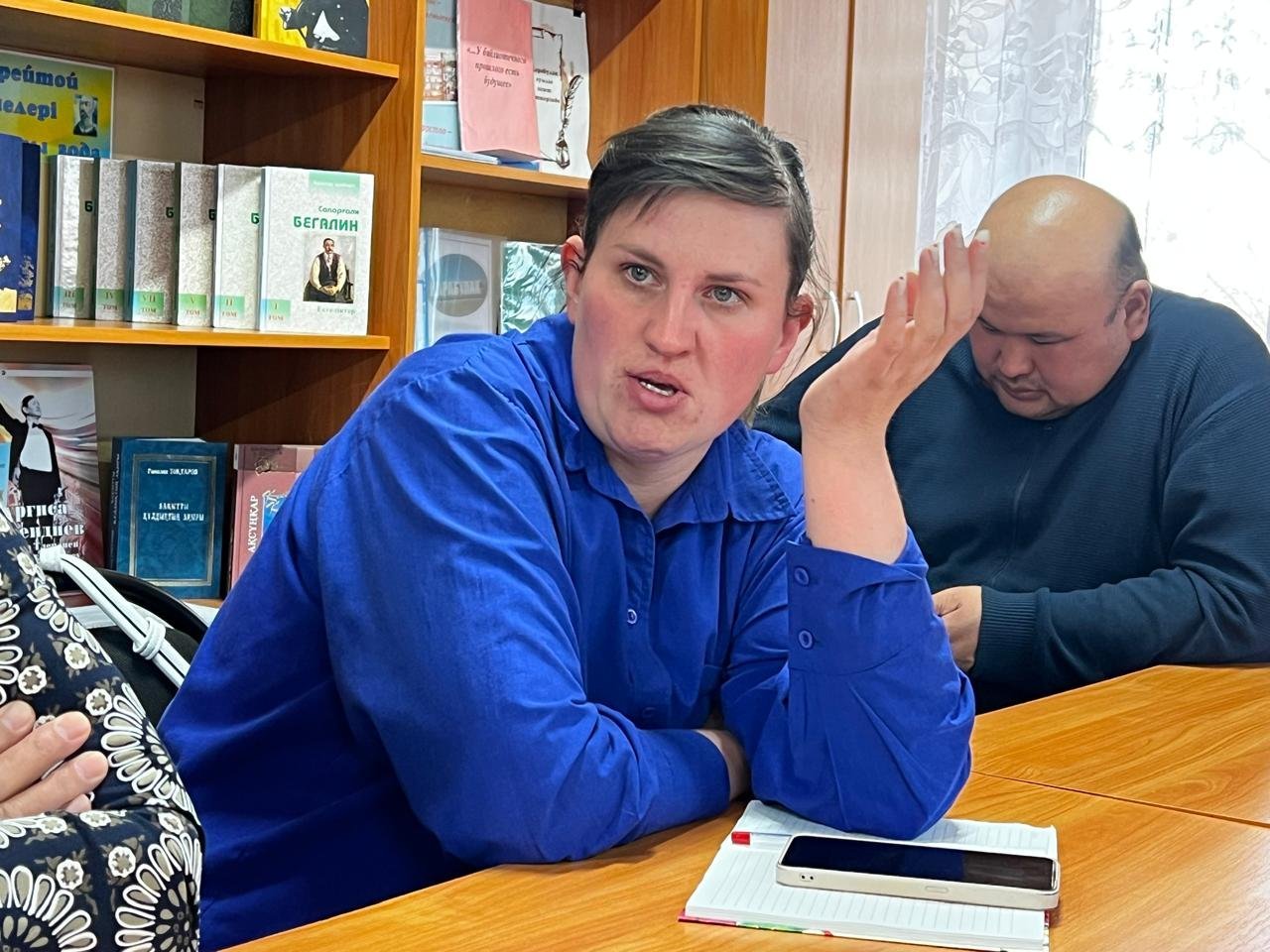
Two steps — and I’m gathering mushrooms. Now ore trucks will pass 15 meters from us. All dust will stay here, she says.
"Next to Gold"
Darya Lazko moved to Qarabulaq for clean air and natural food — to give her children a real village childhood.
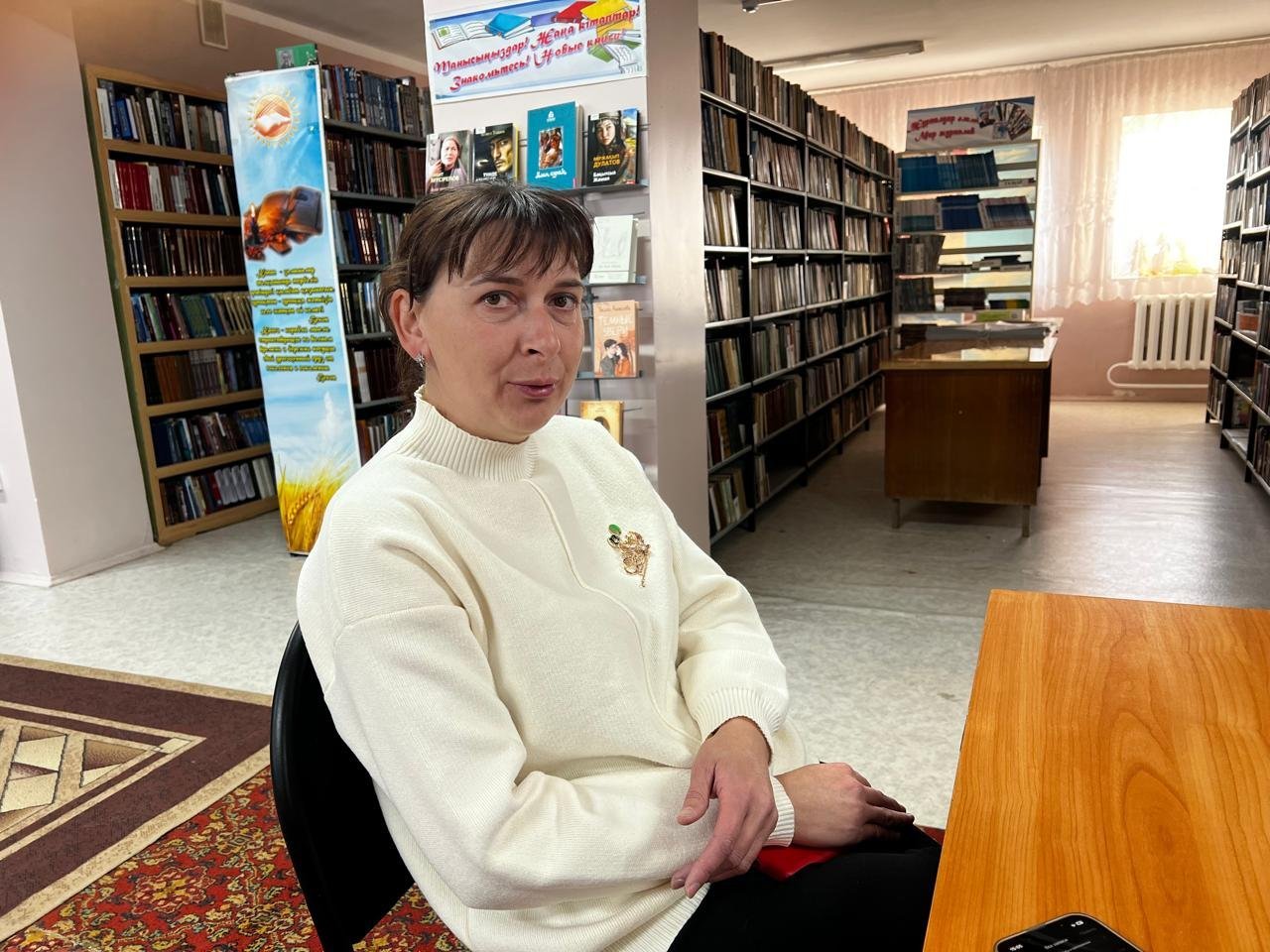
The woman admits the news frightened her because she knows firsthand what it’s like to live “next to gold”:
My mother lived in Zavodskoy. We didn’t even stay overnight there. You could hear the explosions — it’s terrifying when the dust rises, and you can’t breathe. Here we keep our own household — chickens, meat, eggs. And if we don’t have something, it’s easy to buy it here. Our village has a kind of closed production cycle — from field to table. Everything is honest and environmentally clean.
Darya, Tatyana’s neighbor, lives just across the road.
Where there’s gold, there’s always uranium. If it’s brought to the surface, it will be in the air, and cancer rates will skyrocket. We already have many cancer patients in the Stepnogorsk region. The worst part is that children will suffer. Tatyana and I went door to door, spoke with people — everyone was against it. The company’s only argument is jobs. But is any job worth the health we’ll lose? A sick person won’t be able to work anyway, says Lazko, shrugging.
Zinaida-apay supports her:
My grandmother was born in the 19th century. She lived through famine, war, and hardship. From her I heard a good Kazakh proverb that means: a sick or hungry person will not gnaw on a diamond. We need peace, sunlight, health and bread — nothing more.
“At Any Cost”
Villagers wrote to the regional akim, the ecology department, and the Ministry of Agriculture.
Everywhere we wrote, we received formal replies. The Ministry of Ecology responded that the applicant had withdrawn the project. Public hearings were scheduled for the end of July, but since the project was withdrawn, they were cancelled. It seemed as though the company had abandoned its plans. But we understand that’s not the case. They’re simply waiting for emotions to cool and tensions to drop so they can move forward. Back then, in summer, they came to test — so to speak — our reaction. We had many questions about the project, and they were not ready to answer them. And now we’ve learned that after withdrawing the first application, the company has posted a new open-pit mining project for the Pervomaiskoye deposit on the environmental portal, says Zhanbay Omarov.
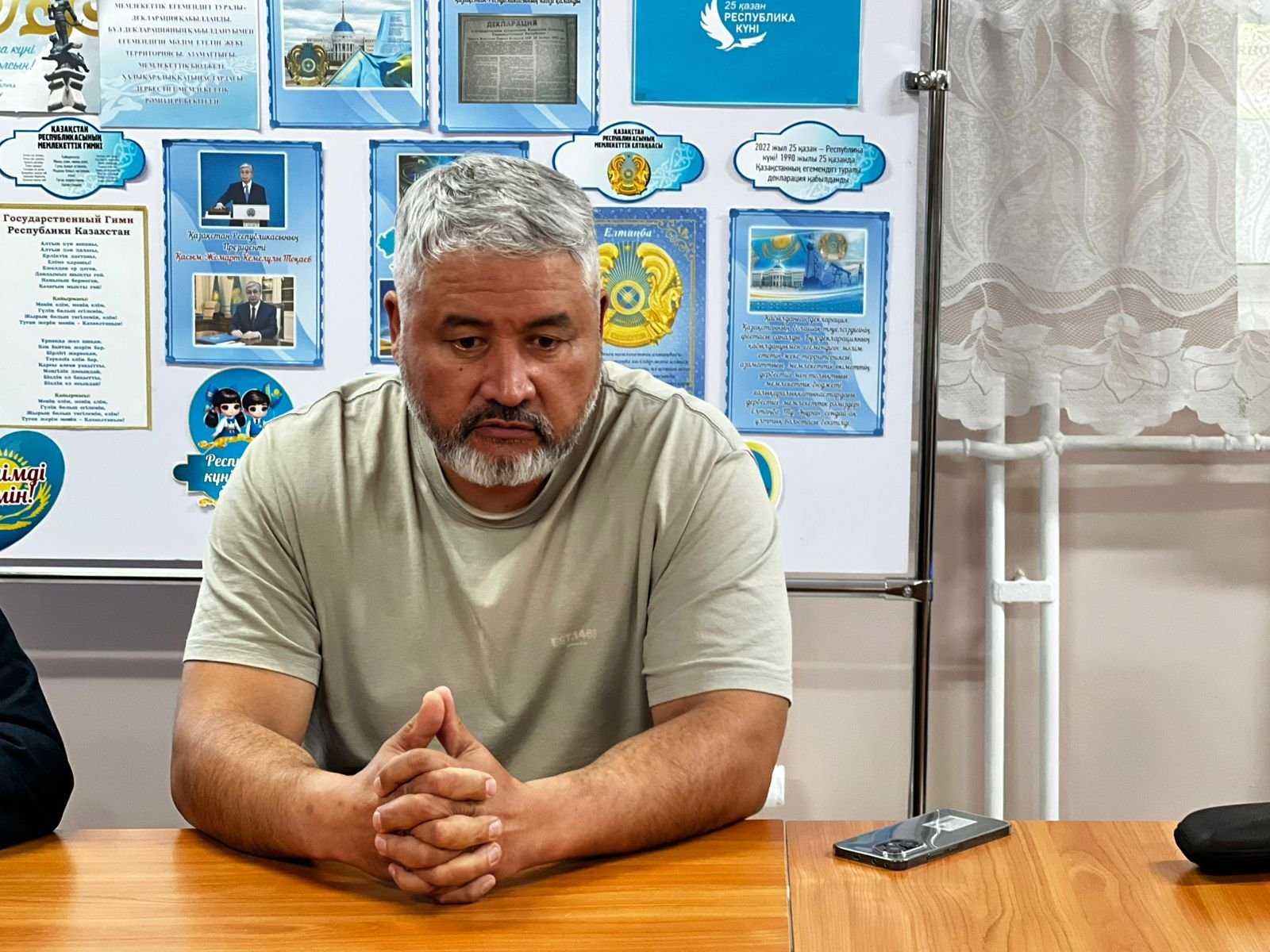
He recorded a video showing the distance from his field to the edge of the deposit.
According to the farmer, it is literally five meters — even though environmental regulations require at least one kilometer.
There are many such issues that, in the villagers’ view, have not been taken into account. They say the initial project contains numerous gaps: it does not specify transportation routes, offers no noise-protection measures, and provides no information on the impact on pastures and water sources.
At the preliminary meeting, we raised all of this. They hadn’t even included a sanitary buffer zone — can you imagine? As if we were livestock, says Kairgeldy Aitimov indignantly.
Orda.kz has sent a request to Altynalmas, but has not yet received a response.
What Officials Say
One of the required steps for obtaining permission to develop the Pervomaiskoye deposit is a mandatory environmental impact assessment. In response to Orda.kz’s inquiry, the regional Department of Ecology gave the same explanation they had given residents. In short:
The company withdrew its application for an environmental impact conclusion. Public hearings scheduled for July 31, 2025 were suspended at the company’s own request.
While this article was being prepared, it became known that a new date for the hearings has already been set — December 18.
I received an official letter with the hearing date. I sent it to all our local groups so people could prepare. Everything will depend on those public hearings. Ecology officials also said that decisions will be based on their results. And at a recent town meeting, representatives of Altynalmas assured us that if the population is fully against it, they will abandon the idea of development. And our residents are determined — they say turnout will be 100 percent, says Qarabulaq akim Musulmanbek Ismagulov.
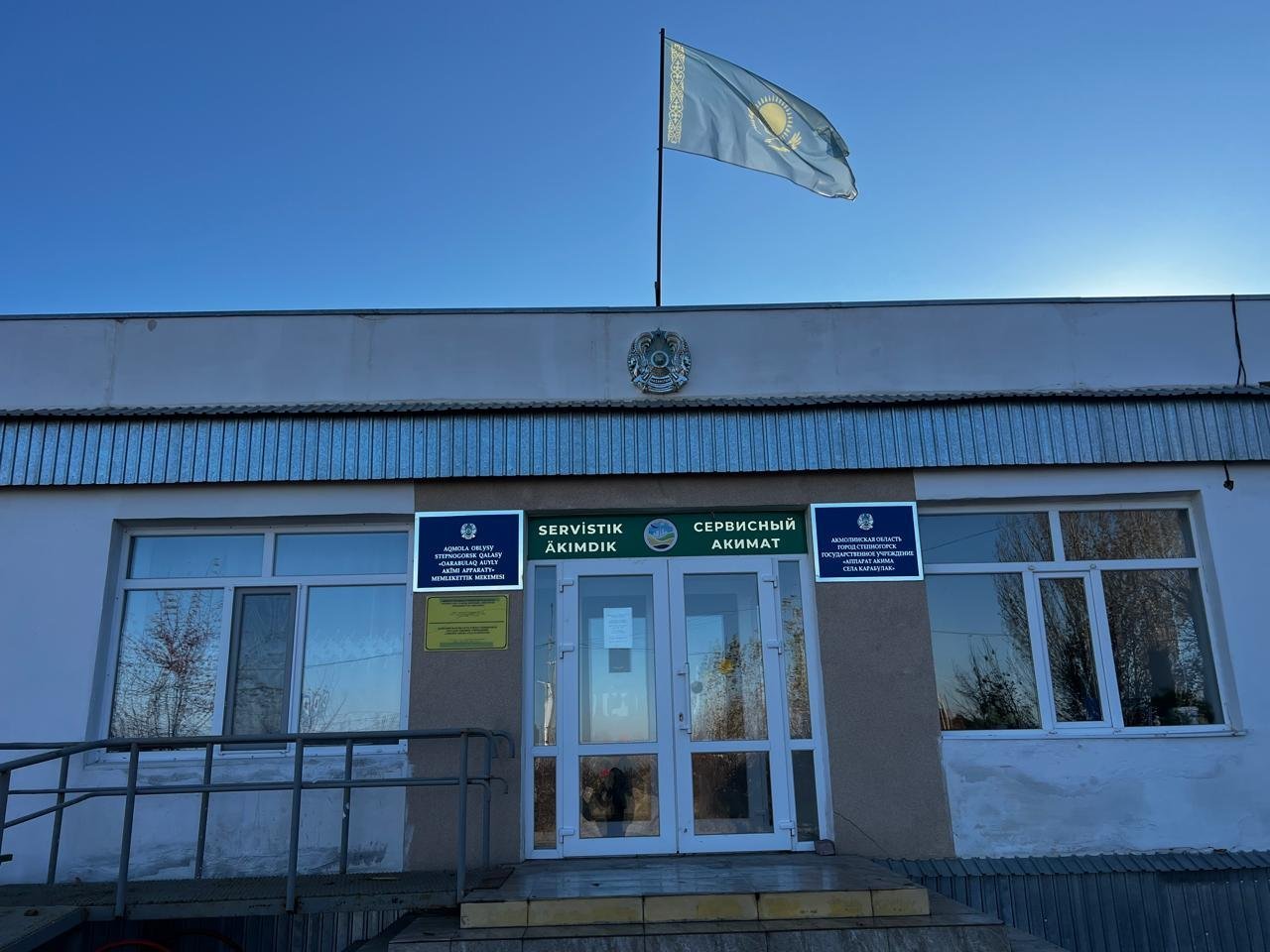
He stands fully with the community and says the project is not worth it:
You can see for yourself — we are an agricultural village. We sow fields, we raise livestock. And I believe at least one environmentally clean place should be preserved. I worked in Bestobe — the pollution there is so severe it threatens people’s health. That is why a mine here is undesirable. Once this land was handed to a private entrepreneur for development, but, as far as I know, he found the ore too poor and abandoned it, returning the land to the Ministry of Industry. The deposit lay unused, our farmers sowed nearby fields. About 400 square meters remain dug up, machinery still sits there. Then the ministry, it seems, put it up for auction — the company bought it. You know how it is: if gold is nearby, they buy everything.
The Stepnogorsk akimat, when asked about the hearing date, did not provide an answer.
So far, no public discussion of the project has taken place. Before that, agreement with local residents is required in order to conduct geological exploration and estimate volumes. Only afterwards will proposals be considered.
The Aqmola region akimat said it intends to “ensure compliance with the Environmental Code and public participation in decision-making.”
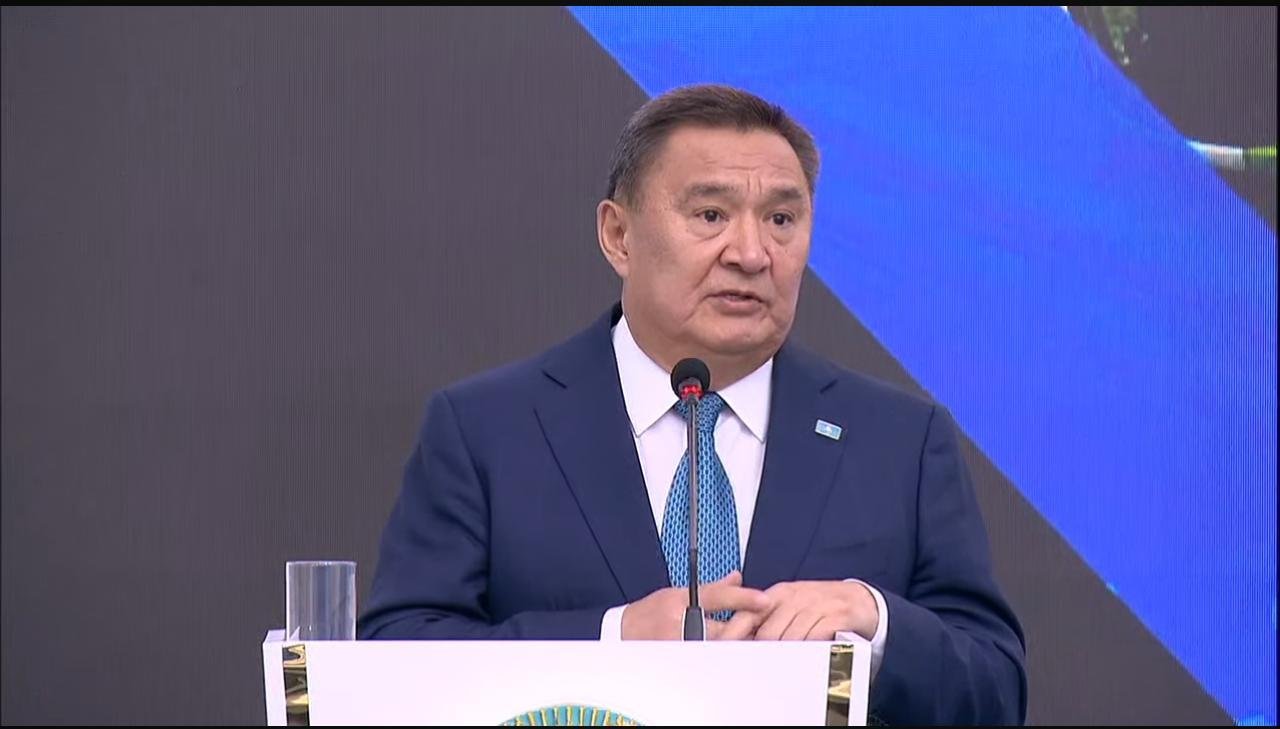
Responding to a question about Qarabulaq’s future, the regional akim also emphasized the importance of residents' opinion:
As I understand it, the matter is not yet on the agenda. But I have clearly explained before: the allocation of land for industrial purposes must follow legal procedures. First — public hearings. If the population is against and presents strong arguments, that is the first barrier to any production here. Second — ecological and other requirements. The company (Altynalmas – Ed.) does not yet have those approvals, so the issue is premature. If it proceeds, we will review everything in detail, promised Marat Akhmetzhanov.
“There’s No Point in Offering Us Anything”
When he said “I explained clearly,” the akim was likely referring to a July meeting with Stepnogorsk residents.
There, Qarabulaq villagers spoke about the effort it took to preserve their settlement and how their priority now is to protect it — its nature and their health.
I hear you, we will review it. Yes, you feed the country, but they (Altynalmas – Ed.) are also doing their work, to be fair, Akhmetzhanov responded at the time.
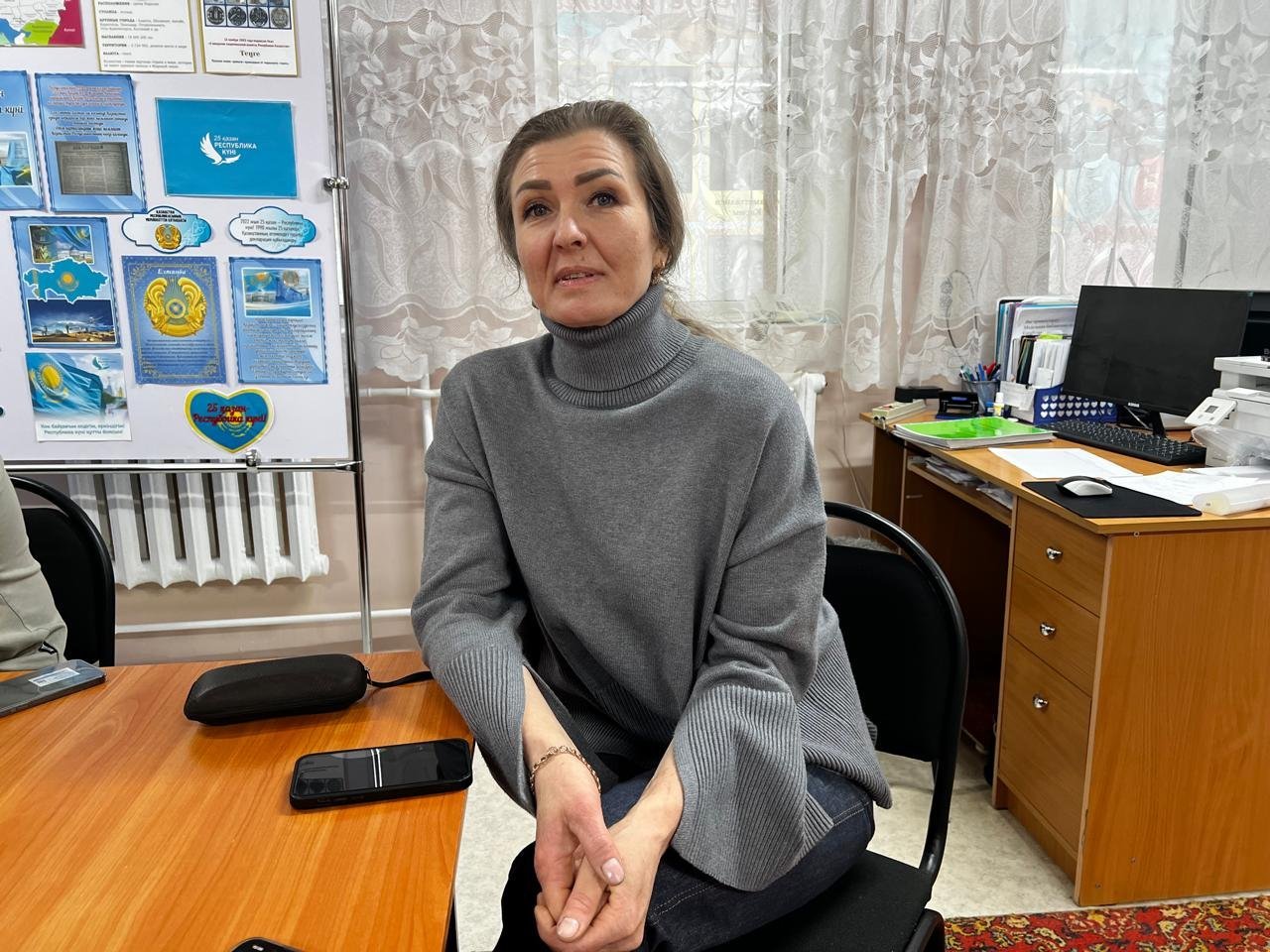
We were upset — I expected the akim to stand up for us. Later we signed up for a personal meeting. There he asked the company representative whether they might be approaching people the wrong way — whether they should offer something. We want to emphasize once again: we will not sell out under any conditions, not for salaries. There’s no point in offering us anything. No gold is worth the health and lives of our children and grandchildren, said Lyudmila Arsentyeva. Qarabulaq is her first and only home.
Meanwhile, villagers are skeptical about the company’s promises of social responsibility.
We understand investment is important for the economy. But I’m sure that what they contribute is pennies for our region. Just look at Aqsu, Bestobe, Zavodskoy. People dream of leaving, but can’t afford new homes elsewhere. Now look at model villages like Rodina or Maksimovka — you can see immediately when employers truly care. And here? Indifference, poverty, no prospects, says Kairgeldy Aitimov.
For now, residents are preparing for the public hearings — reminding each other that land belongs to the people.
Original Author: Assel Turar
Latest news
- How many Kazakhstanis remain in the Middle East — MFA
- Kazhydromet Warns of High Flood Risk in Five Regions in 2026
- MP Calls for Prosecutor Review of Kazakhstanis’ Dubai Property
- Kazakhstan Moves to Legalize Private Detective Work
- Kazakhstan to Extend Gas Export Ban for Six More Months
- Majilis MP Calls to Soften Liability for Kazakhstanis Drawn into Foreign Wars for Pay
- The Delivery of 51 Stadler Passenger Coaches Has Been Delayed
- Kazakhstan Returns Nearly 1,000 Citizens From the Middle East
- Damaged Baikonur Launch Pad Facility Restored After 2025 Collapse
- A Rare Black Melanist Wolf Was Shot in Eastern Kazakhstan
- Kazakhstan Maintains Neutral Stance on Middle East Escalation
- Kazakh MFA: Citizens Evacuated from the Middle East via Oman and Saudi Arabia
- Kazakhstan to Spend 4.6 Trillion Tenge on Road Projects Through 2029
- Central Asia Competes for the Skies: Why Kazakhstan Risks Falling Behind Uzbekistan on Jet Fuel
- The War in Iran Opens a Window of Opportunity for Kazakhstan’s Oil Sector, Analysts Say
- Iran Conflict Escalates Beyond the Gulf: What Kazakh Experts Say About Risks for Central Asia and Kazakhstan
- Kazakhstan Prepares Possible Evacuation of Its Citizens From Iran
- LRT in Astana Is Reaching the Finish Line: The Launch Is Expected in the Coming Months
- Kazakhstan Ready to Help the UAE Amid Escalation in the Region
- Tokayev Discusses Middle East Escalation With Qatar’s Emir

